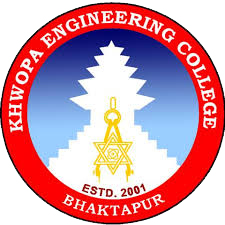Overview
Bachelor of Electrical Engineering at Khwopa College of Engineering, Bhaktapur, Nepal (affiliated with TU)
BE Electrical Engineering is a four-year undergraduate program that focuses on the principles and practices of electrical and electronic systems. The program is designed to provide students with a solid foundation in electrical engineering and to prepare them for a variety of careers in this field.
Course Outlines
The program covers various areas such as circuit analysis, electronics, digital systems, signal processing, power systems, control systems, and communication systems. Students also get exposure to practical work in the form of laboratory experiments, projects, and internships.
Duration
The BE Electrical Engineering program at Khwopa College of Engineering is a four-year, eight-semester course.
Objectives
The objectives of the BE Electrical Engineering program are to:
-
Provide students with a strong foundation in electrical engineering principles and practices.
-
Develop students' analytical and problem-solving skills to tackle real-world problems in the field.
-
Equip students with the ability to design and implement electrical and electronic systems.
-
Prepare students for professional engineering careers in the industry or for further academic pursuits.
Eligibility
To be eligible for the BE Electrical Engineering program at Khwopa College of Engineering, students must have completed I.Sc. or +2 (Science) or Diploma in Engineering (3 Years) or equivalent, with a minimum of 45% of full marks. Additionally, students must pass the entrance examination conducted by the Institute of Engineering (IOE), Tribhuvan University.
Learning Outcomes
Upon completion of the BE Electrical Engineering program, graduates will have gained:
-
A solid understanding of electrical engineering principles and practices.
-
The ability to analyze and design electrical and electronic systems.
-
An understanding of various areas such as circuit analysis, electronics, power systems, control systems, and communication systems.
-
Practical skills gained through laboratory experiments, projects, and internships.
-
Strong analytical and problem-solving skills.
Scope
BE Electrical Engineering graduates have a wide range of opportunities in both the public and private sectors. They can pursue careers in power generation and distribution, telecommunications, electronics, automation, and control systems, among others. They can also opt for further academic pursuits such as postgraduate studies.
Career Prospects
Some of the career prospects for BE Electrical Engineering graduates include:
-
Electrical Engineer
-
Electronics Engineer
-
Telecommunications Engineer
-
Control Systems Engineer
-
Power Systems Engineer
-
Automation Engineer
Career Options
BE Electrical Engineering graduates have a range of career options, including:
-
Public and private sector companies involved in power generation, distribution, and transmission
-
Telecommunications companies
-
Electronic manufacturing companies
-
Automation and control systems companies
-
Research and development organizations
-
Academic and research institutions
Why Choose this Course
BE Electrical Engineering is an excellent choice for students who are interested in the field of electrical and electronic systems. The program offers a strong foundation in electrical engineering principles and practices and equips students with the necessary skills to design and implement electrical and electronic systems. The program also offers exposure to practical work through laboratory experiments, projects, and internships, making it an excellent choice for students who want hands-on experience.
Scholarship
Khwopa College of Engineering offers scholarships to economically needy, diligent, and disciplined students. Scholarships of 100%, 50%, and 25% are provided on the basis of mark sheet in semester exam results.
Contact Khwopa College of Engineering's administrative office for detailed information on the Bachelor of Electrical Engineering course, including fees, scholarships, facilities, counseling, eligibility criteria, etc.

















